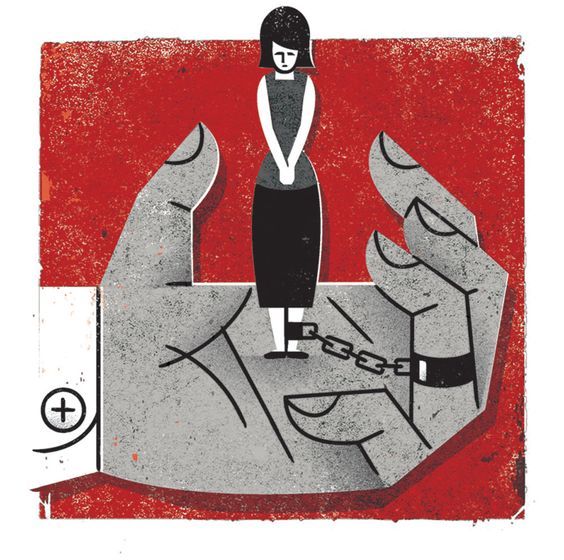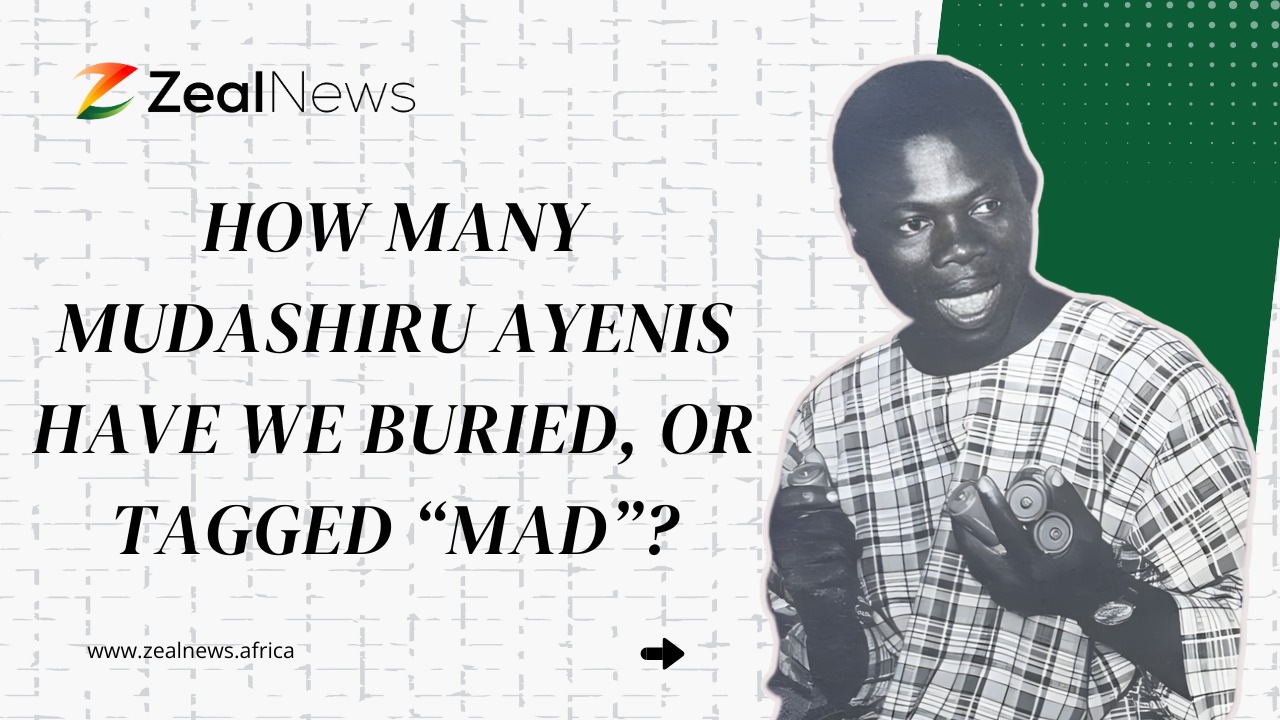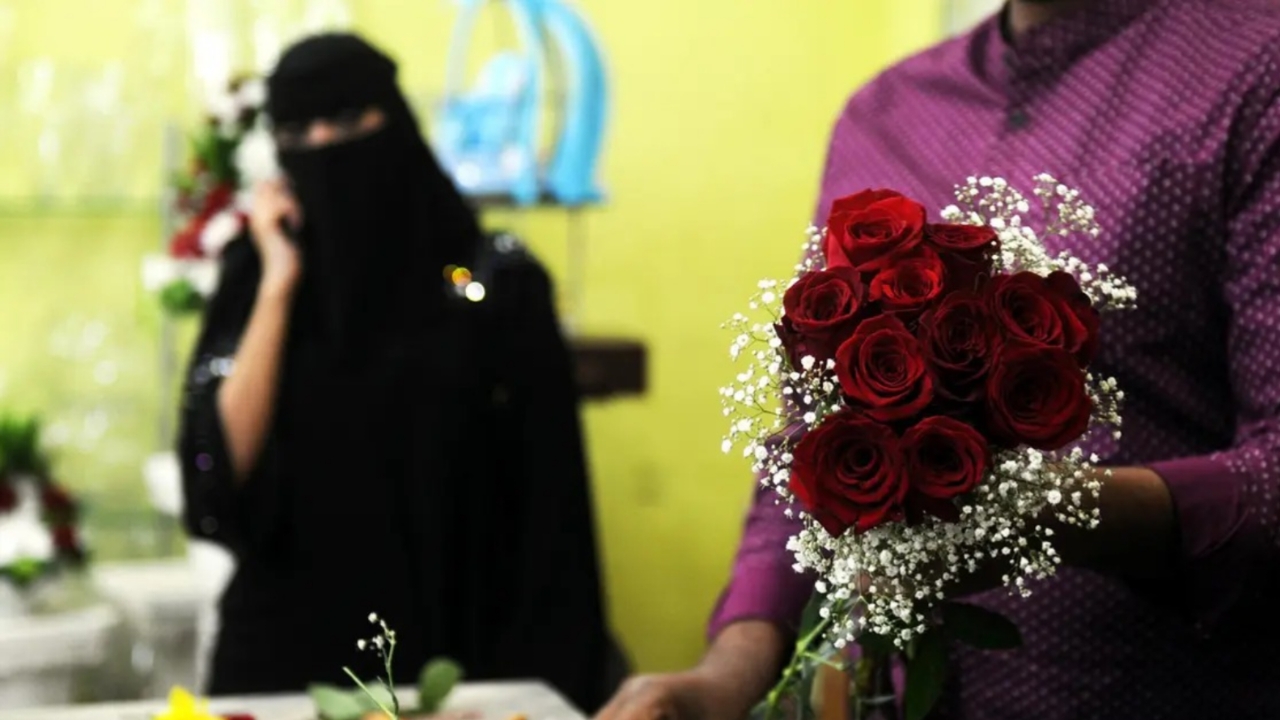OPINION: We Can’t Pray Patriarchy Away — Why Religion Still Holds African Women Hostage

Written By: Unusere Precious
Imagine being taught to kneel before you can spell your name. To cover your chest before you even know what shame means. You hear it at home:
“A good woman doesn’t talk back.”
You grow up knowing your worth is tied to how well you serve, not how loudly you speak—and when you do speak loudly, you're tagged rebellious.
It’s subtle at first, wrapped in proverbs, hymns, and popular sayings. But eventually, it becomes law. Not state law, but a sacred one—the kind you don’t question without being called rebellious or, worse, ungodly.
And so you shrink.
But what if faith was never meant to silence you? What if religion, in the African context, isn’t just a path to salvation—but also, unfortunately, a tool of submission?
This isn’t just a story. It’s the heartbreaking reality of millions of African women. And it’s time we talked about it.
Photo credit: Shaquiel Mckenzie
Religion: A Double-Edged Sword
Many would argue that African societies are now free from overt oppression. But are we truly free?
Religion, as defined by the Oxford Advanced Learner’s Dictionary, is “the belief in the existence of a god or gods, and the activities that are connected with the worship of them.”
While often viewed as a moral compass, in many African communities, religion has also been weaponized—subtly and systematically.
Patriarchy, under the guise of doctrine, has seeped deep into spiritual spaces. While some men uphold it openly, others propagate it quietly through cultural expectations.
Across indigenous belief systems, Christianity, and Islam, the divine is almost always male, reinforcing a hierarchy that places masculinity as sacred and femininity as submissive or dangerous.
Photo credit: Prince Kwembe-Unsplash
What Do Feminism and Patriarchy Mean?
Feminismis the belief in equal rights and opportunities for all genders. It challenges the social, political, and religious systems that uphold inequality.
Patriarchyis a structure or system where men hold power, often at the exclusion or subjugation of women.
In many African homes, “Obey and never question” is the golden rule. Girls are taught that their role is to serve, not speak.
A woman must kneel to greet her husband or male elders.
She must not be seen with men or have male friends.
These norms, often passed off as religious values, are anything but neutral. In fact, Ephesians 5:22–24 (“Wives, submit yourselves…”) is often quoted without context, ignoring Ephesians 5:25, which commands men to love sacrificially and not harshly.
The same cherry-picking happens with Colossians 3:19, which says:
“Husbands, love your wives and do not be harsh with them.”
These verses, in full context, demand mutual love, humility, and respect, not domination.
The Intertwining of Culture and Doctrine
Religion in Africa does not exist in a vacuum—it is interwoven with cultural norms. From dress codes enforced solely on women to the exclusion of women from church or mosque leadership, religious practices often mirror pre-existing patriarchal systems.
For example:
Islamic verse Qur’an 4:34says:
“Men are in charge of women…”
While scholars argue this refers to spiritual responsibility, it is routinely misused to justify control and dominance.
Marriage and motherhood are portrayed as the sole purpose of a woman’s life, discouraging women from careers, leadership, or independence.
As Chimamanda Ngozi Adichie famously said:
“Religious institutions have often played a role in entrenching sexist ideologies under the guise of spirituality.”
It’s essential to note that not all patriarchy stems from religion. African cultures are diverse, and many patriarchal structures predate Christianity or Islam. But religion has undeniably been used to amplify gender inequality.
The Rise of African Feminist Theology
Photo credit: Pngtree
Across the continent, African women are reclaiming their faith, not by abandoning religion, but by reinterpreting it.
1. The Circle of Concerned African Women Theologians
Founded by Mercy Oduyoye in 1989, this group critiques patriarchal interpretations and reimagines theology through African women’s lived experiences. Scholars like Musa W Dube, its former coordinator, critique patriarchal interpretations and offer readings rooted in African lived experiences.
2. STIWANISM (Social Transformation Including Women in Africa)
Developed by Molara Ogundipe-Leslie, it blends culture, spirituality, and feminism to advocate for inclusive transformation.
3. Indigenous Knowledge and Theology
Kenyan scholar Hannah Wangeci Kinoti proposes using Gikuyu philosophy and proverbs to heal colonial and patriarchal wounds.
4. Redefining Leadership
Women like Fulata Moyo, Teresa Okure, Peggy Mulambya-Kabonde, and Musimbi Kanyoro are reforming churches from within—insisting that women can lead, preach, and decide.
Dispelling Myths: Feminism vs Faith
Feminism is not anti-faith. In fact, many African feminists are deeply religious. They simply believe in a version of religion that reflects love, justice, and equity.
Common Misconceptions:
Feminists Hate Men:
Feminism is about balance, not revenge.Feminism is Foreign:
Pre-colonial Africa had matriarchal societies and strong female leadership, like Funmilayo Ransome-Kuti and Margaret Ekpo, who led resistance movements.Feminists Reject Faith:
Many advocate faithful reinterpretation, not abandonment of religion.
As one activist put it:
“Feminism is about allowing women to reach their full potential without barriers created by outdated beliefs.” – IamAFeminist.org
Liberation Theology: Reclaiming the Sacred
Liberation theology in Africa isn’t about rebellion—it’s about dignity and healing.
Women Leading This Movement:
Mercy Oduyoye: Founded the Circle of Concerned African Women Theologians and uses indigenous traditions to reframe Christian theology for justice and gender inclusion.
Hannah Wangeci Kinoti developed a unique theology rooted in Gikuyu philosophy and promotes communitarian ethics rooted in African culture.
Fulata Moyo & Teresa Okure: Advocate feminist biblical interpretation to include African women’s voices.
Peggy Mulambya-Kabonde: Reshaping church policy and leadership from within.
These women prove that faith and feminism can coexist, and even strengthen each other.
Conclusion: Reform, Not Rebellion
Religion should be a source of liberation, not a prison.
While it has guided many toward spiritual purpose, it has also silenced those it should uplift. But today, African women are transforming these spaces:
Publishing and preaching feminist theology
Leading spiritual and social reform
Blending indigenous values with inclusive faith
“Faith and feminism are not enemies. They are allies.”
It’s time we stopped praying patriarchy away—and instead, named it, challenged it, and reformed the systems that sustain it.
African women are not trying to tear down sacred traditions—they are rebuilding them, brick by brick, with justice, dignity, and equity at the center.
Written By: Unusere Precious
You may also like...
Super Eagles Fury! Coach Eric Chelle Slammed Over Shocking $130K Salary Demand!
)
Super Eagles head coach Eric Chelle's demands for a $130,000 monthly salary and extensive benefits have ignited a major ...
Premier League Immortal! James Milner Shatters Appearance Record, Klopp Hails Legend!

Football icon James Milner has surpassed Gareth Barry's Premier League appearance record, making his 654th outing at age...
Starfleet Shockwave: Fans Missed Key Detail in 'Deep Space Nine' Icon's 'Starfleet Academy' Return!

Starfleet Academy's latest episode features the long-awaited return of Jake Sisko, honoring his legendary father, Captai...
Rhaenyra's Destiny: 'House of the Dragon' Hints at Shocking Game of Thrones Finale Twist!

The 'House of the Dragon' Season 3 teaser hints at a dark path for Rhaenyra, suggesting she may descend into madness. He...
Amidah Lateef Unveils Shocking Truth About Nigerian University Hostel Crisis!

Many university students are forced to live off-campus due to limited hostel spaces, facing daily commutes, financial bu...
African Development Soars: Eswatini Hails Ethiopia's Ambitious Mega Projects

The Kingdom of Eswatini has lauded Ethiopia's significant strides in large-scale development projects, particularly high...
West African Tensions Mount: Ghana Drags Togo to Arbitration Over Maritime Borders

Ghana has initiated international arbitration under UNCLOS to settle its long-standing maritime boundary dispute with To...
Indian AI Arena Ignites: Sarvam Unleashes Indus AI Chat App in Fierce Market Battle

Sarvam, an Indian AI startup, has launched its Indus chat app, powered by its 105-billion-parameter large language model...






